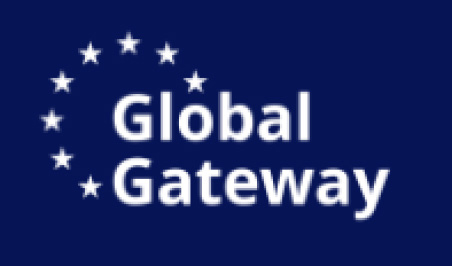 The European Commission is promoting the green transition externally, aiming to combat climate change and to minimise threats to the environment in line with the Paris Agreement together with Partner States. This includes notably the so-called Global Gateway strategy.
The European Commission is promoting the green transition externally, aiming to combat climate change and to minimise threats to the environment in line with the Paris Agreement together with Partner States. This includes notably the so-called Global Gateway strategy.
Global Gateway will foster convergence with European or international technical, social, environmental and competition standards, reciprocity in market access and a level playing field in the area of transport infrastructure planning and development. It will serve to enhance the recharging and refuelling infrastructure for zero-emission vehicles and foster the supply of renewable and low-carbon fuels. It will serve to strengthen aviation and maritime links with key partners, while also setting new standards to enhance environmental and social sustainability, create fair competition and reduce emissions in those sectors.
Air transport is acknowledged as a hard to decarbonise sector, while at the same time global air traffic is projected 174 to continue growing, contributing to economic and social growth. This increase in air traffic will increase total aviation emissions if no action is taken. To face this challenge, and acknowledging SAF as a cost-effective measure with the potential to significantly reduce the carbon footprint of air transport in the short- and long-term, increased availability and use of SAF outside of Europe has become a strategic objective for the EU. SAF also has a high potential to contribute to the economic development of States, notably in Africa, and to reduce their dependence on imported energy sources.
In December 2023, the European Council endorsed the list of Global Gateway flagship initiatives for 2024, including the global development and use of SAF
, in line with the strategy’s pledge to enhance sustainable transport connections. This will support achieving the objectives of both the Long-Term Aspirational Goal of net zero CO2 emissions from international aviation by 2050 and the ReFuelEU Aviation Regulation mandate that 70% of fuel supplied by 2050 must be SAF.The recognition of SAF as a strategic priority provides the opportunity to access dedicated funds that can help reduce the investment gap for sound SAF production projects in Partner States.
